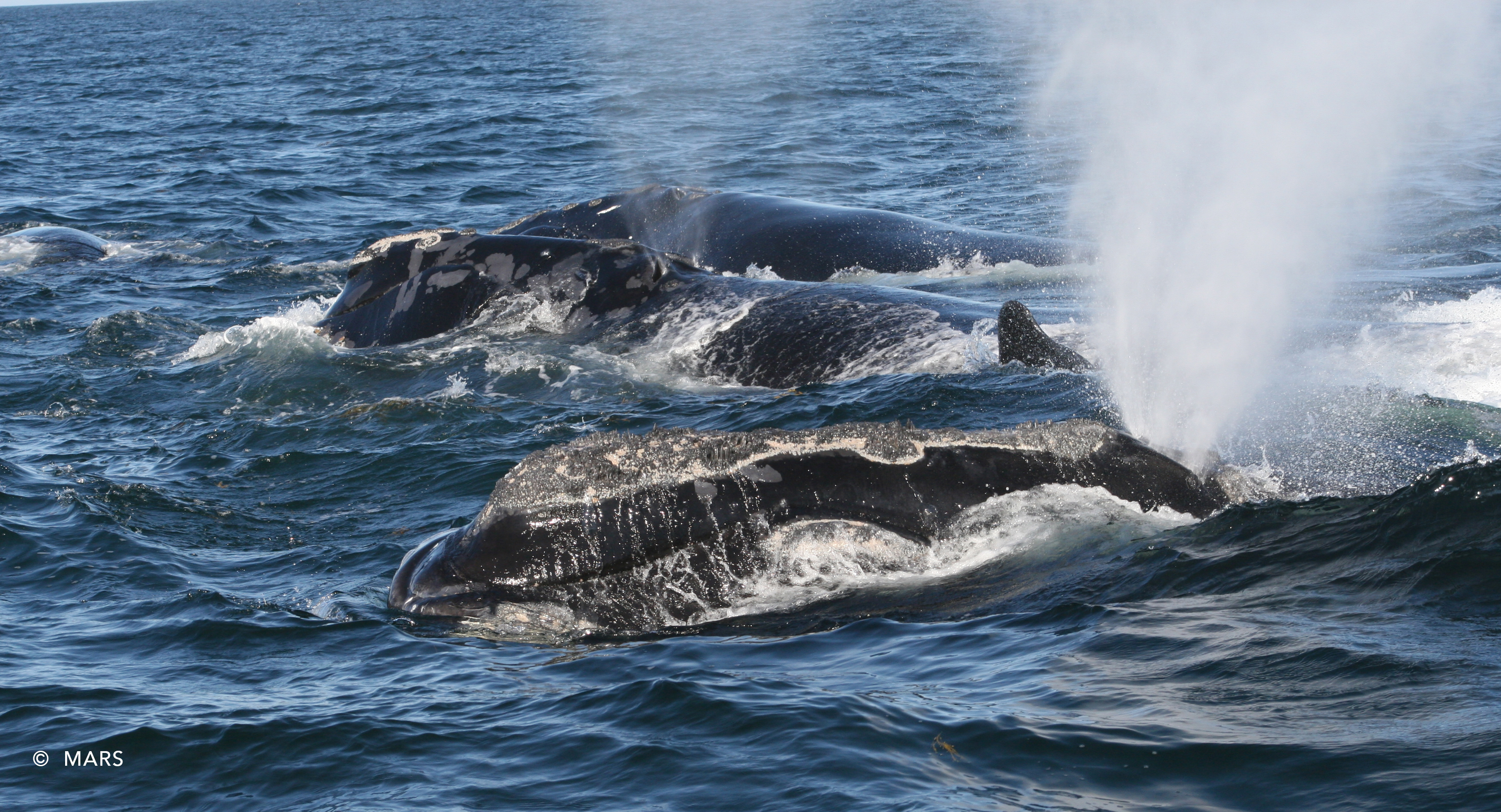SUMMARY
Eight endangered North Atlantic right whales have been found dead in Canadian waters this year, including Comet, a 33-year-old grandfather (below), and Punctuation, a 38-year-old breeding grandmother. Many of the eight whales died from a totally preventable cause, collisions with vessels. You can help change this by supporting the Marine Animal Response Society’s efforts to respond, research, and advocate for solutions that help protect these incredible whales.
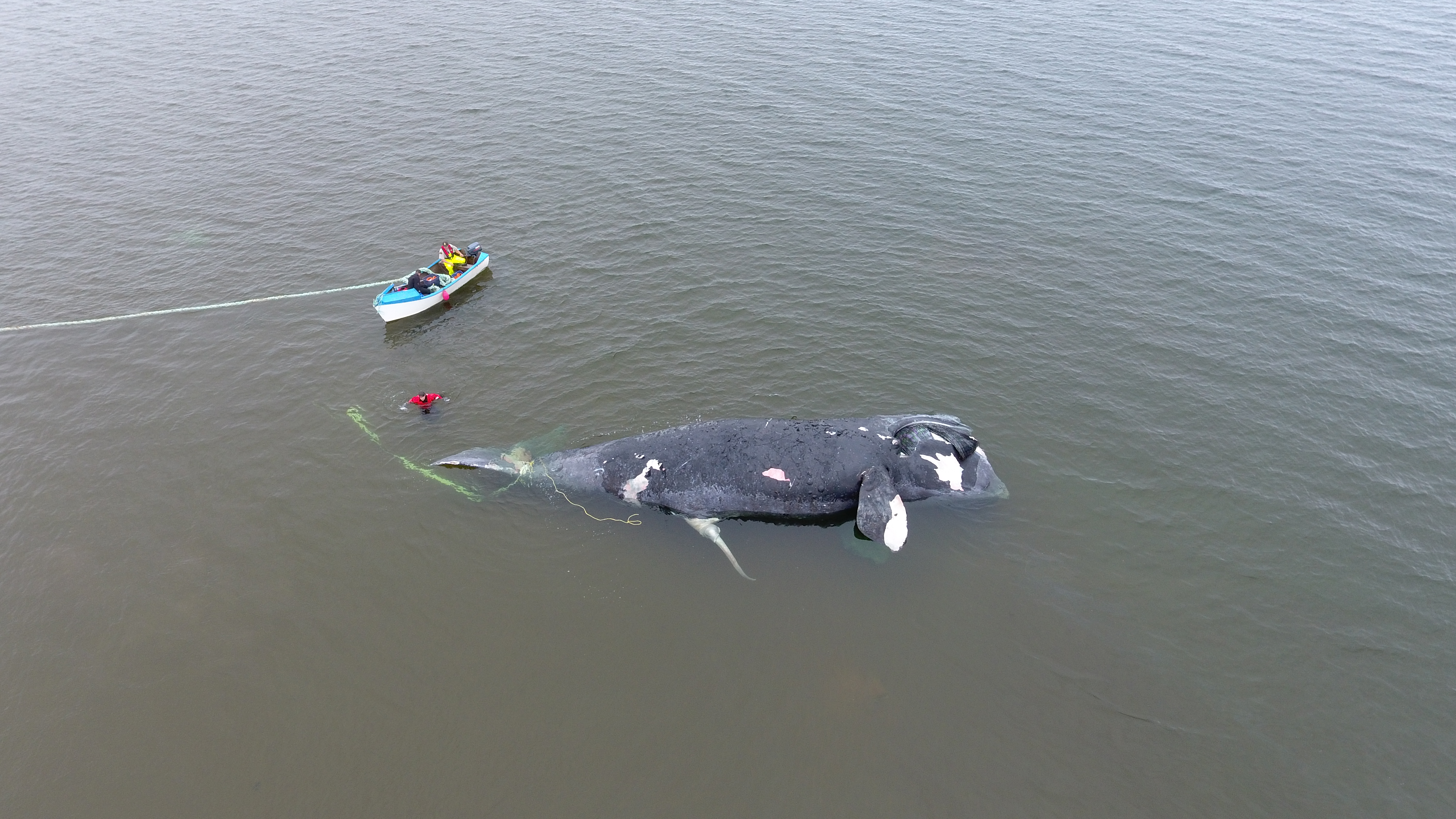
CHALLENGE
There are only about 400 North Atlantic right whales left in the world, and deaths are outpacing births. Each death brings this unique whale one step closer to extinction.
Over the past few years, right whales have been appearing in increasing numbers in Canada’s Gulf of St. Lawrence, most likely because their main source of food is not as abundant in areas where they were traditionally found. While there might be more food in the Gulf, there are also serious threats from human activities.
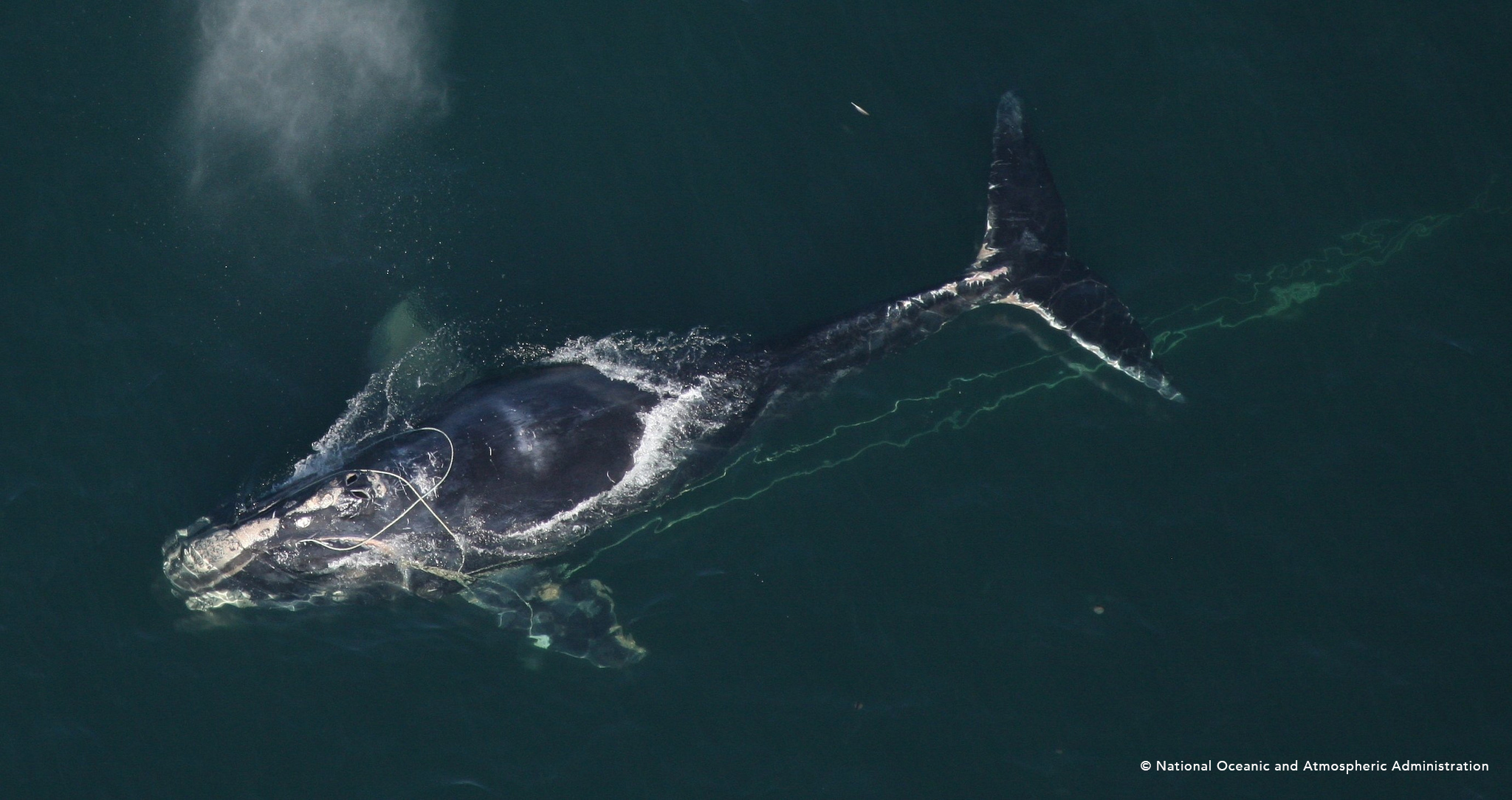
In 2017, 12 North Atlantic right whales died in Canadian waters - the largest mass die off of this species since the days of commercial whaling. Many of these deaths were the direct result of vessel strikes and entanglement in fishing gear. Already this year, many of the six right whale deaths are the result of vessel strikes and several animals have also been found entangled. This simply cannot go on.
SOLUTION
Our goal is to use our 20-years of experience responding to stranded, distressed and dead marine animals to advocate for policies that protect right whales. As one of the only front-line responders in the Canadian Maritime Provinces, MARS experts have seen first-hand the impact human activity is having on endangered right whales.
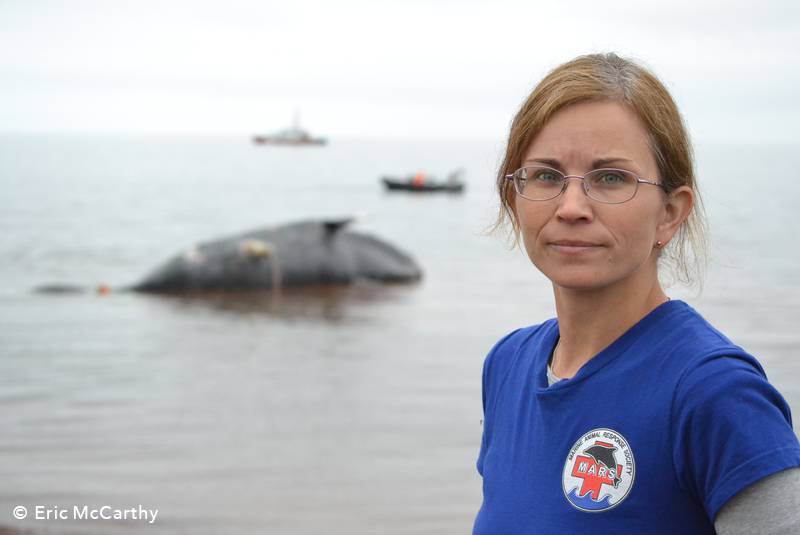
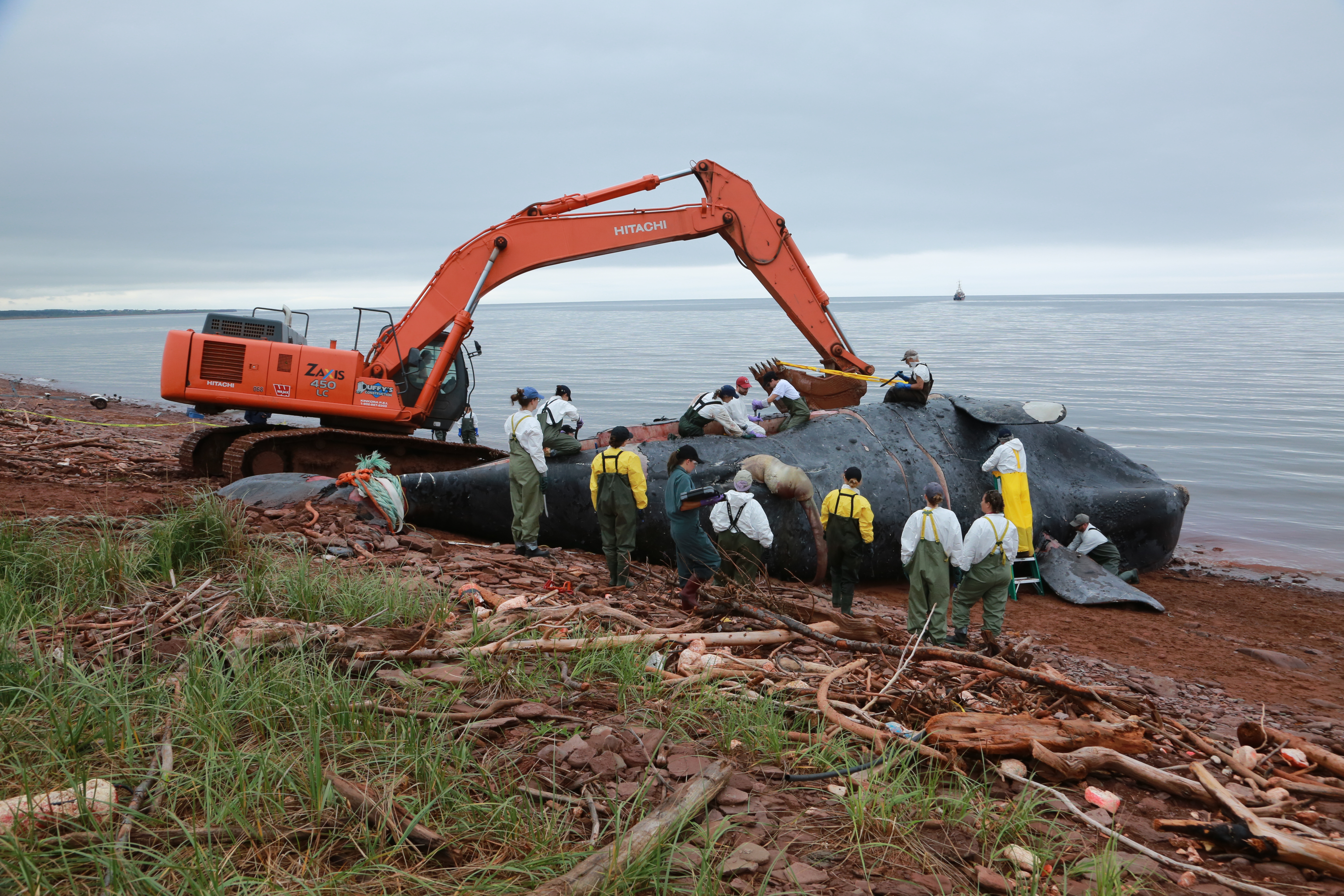
By supporting our response activities, you’re increasing our ability to respond quickly to incidents as they occur. Your support also helps us develop a strong body of scientific data and advocate for policies that ensure right whales have a future.
LONG-TERM IMPACT
Our long-term goal is to expand our efforts to protect right whales and other marine animals by training more people to respond quickly to incidents across the Canadian Maritimes. The funds we receive will help support the people, equipment, and systems needed to effectively respond to distressed, stranded, and dead marine animals, year-round.
